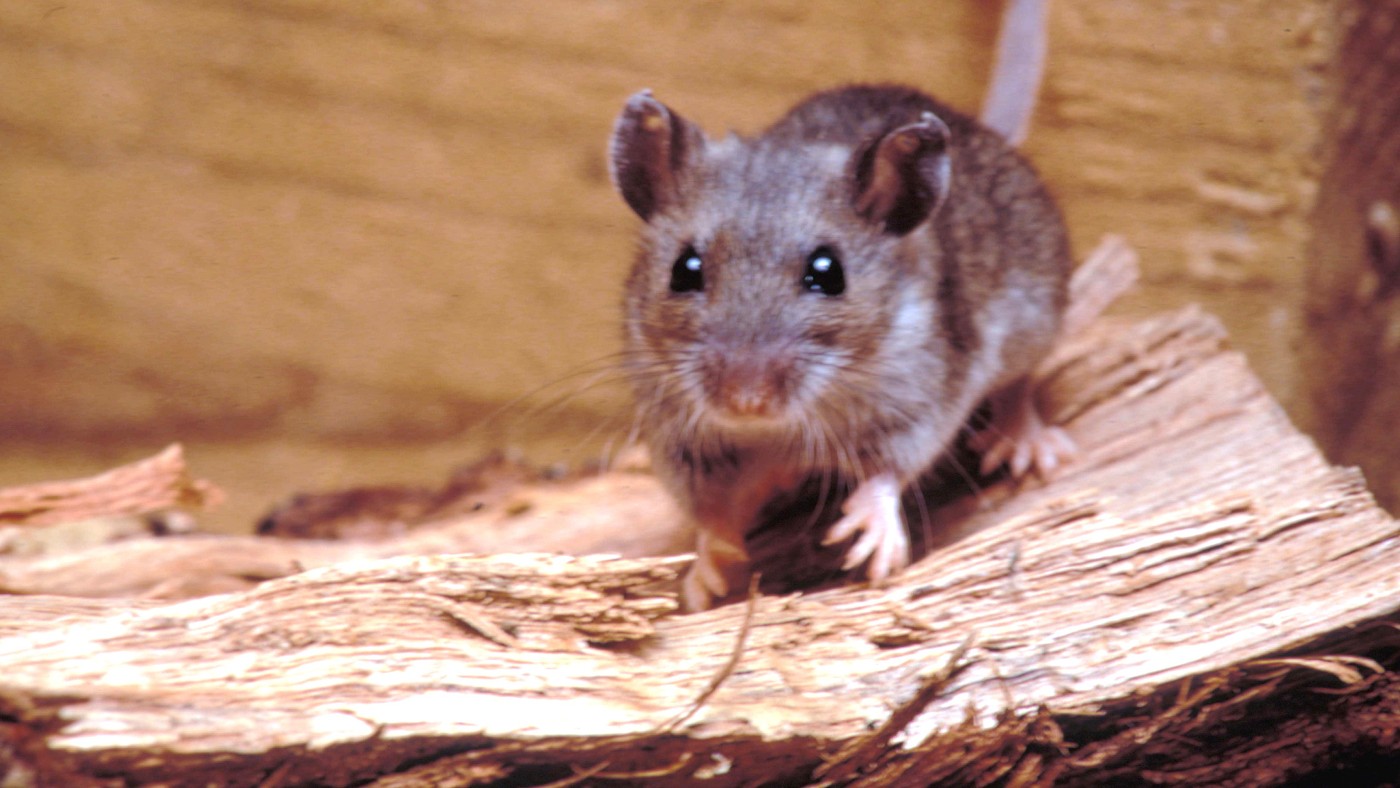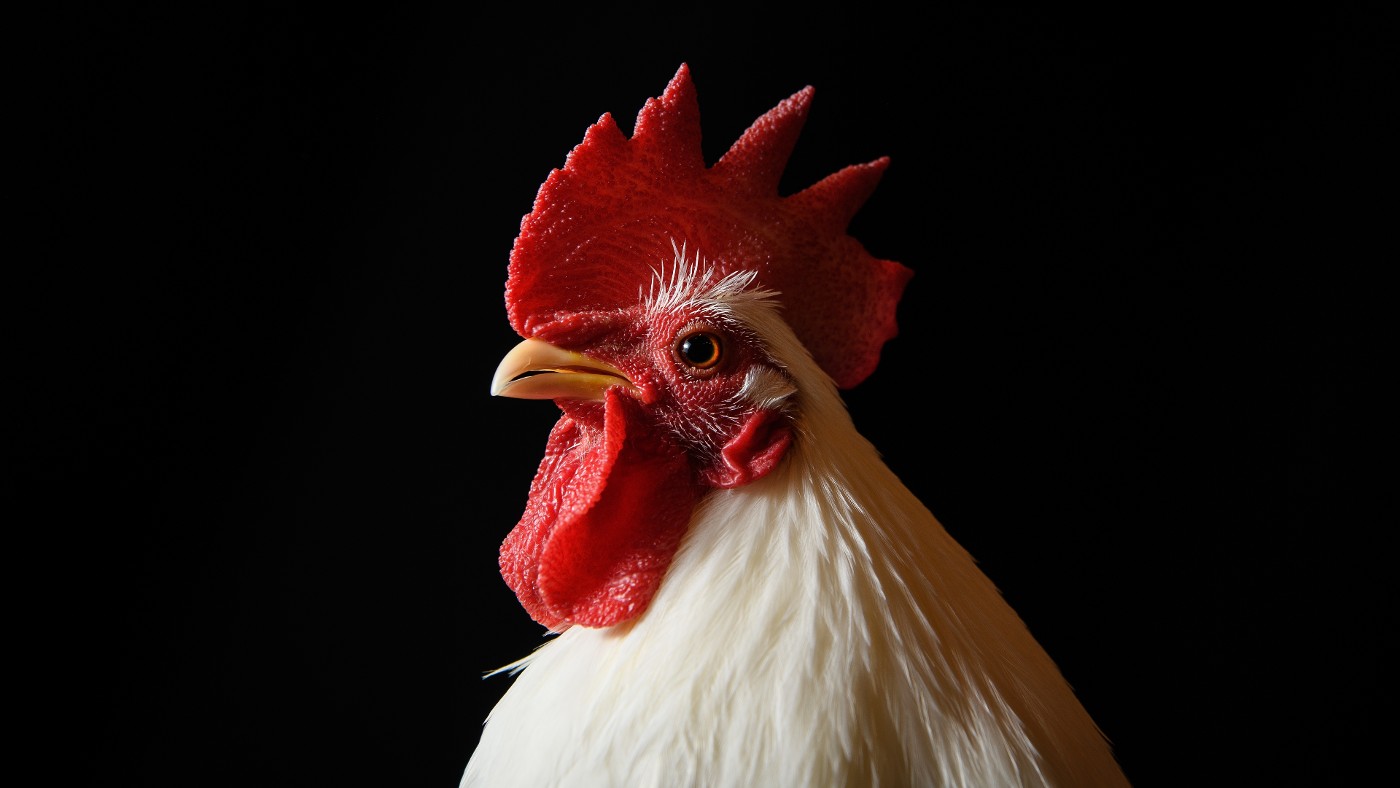Pros and cons of a vegan diet for pets
Plant-based food might have some health benefits for dogs

A free daily email with the biggest news stories of the day – and the best features from TheWeek.com
You are now subscribed
Your newsletter sign-up was successful
The plant-based pet food market is booming as animal owners hope their furry friends will reap the health benefits of a meat-free diet.
The global vegan pet food market was projected to be worth $9.6bn (£7.8bn) in 2020, and is estimated to rise to $16.3bn annually by 2030, with the range of choices available to consumers in the UK rapidly expanding, according to Tim Dowling in The Guardian.
And the growing movement for vegan pets has some prominent proponents. Vegan Formula 1 racing star Lewis Hamilton revealed two years ago that his British bulldog was now “fully vegan” to alleviate a range of health issues, reported Euronews.
The Week
Escape your echo chamber. Get the facts behind the news, plus analysis from multiple perspectives.

Sign up for The Week's Free Newsletters
From our morning news briefing to a weekly Good News Newsletter, get the best of The Week delivered directly to your inbox.
From our morning news briefing to a weekly Good News Newsletter, get the best of The Week delivered directly to your inbox.
But is a vegan diet really suitable for pets?
1. Pro: health benefits for dogs
Researchers have said that vegan diets are healthier and safer for dogs than conventional meat-based diets, as long as they are nutritionally complete.
In one of the largest studies to date, researchers at the University of Winchester followed the health of more than 2,500 dogs using surveys completed by their owners, assessing seven indicators of health, such as visits to the vet and 22 common illnesses in canines.
They found that of the dogs eating normal pet food, 17% were taken to the vet at least four times a year, compared with 9% of vegan dogs and 8% eating a “raw” diet. They also found that almost half the dogs fed meat-based diets required non-routine medication while only a third of the dogs fed vegan diets did so.
A free daily email with the biggest news stories of the day – and the best features from TheWeek.com
The study author, Andrew Knight, suggested that vegan food appeared better for pets as the quality of conventional pet food may contribute to weight problems. “One of the most common health problems for dogs is being overweight or obese and it is unfortunately common that when we do tests on the commercial meat-based diets, there are more calories,” he said.
But some vets have warned the study may not be entirely reliable as it is based on owners reporting their dog’s health and was, therefore, a “very opinionated survey”, reported The Times. Pete Wedderburn, a vet based in Bray, said there was no doubt that a dog could “thrive” on a vegan diet but that it was not better than feeding your dog standard dog food.
2. Con: lack of long-term studies
The British Veterinary Association (BVA) has warned that although dogs can theoretically be fed a vegan diet that fully meets their nutritional needs, there was not enough evidence to suggest such an approach is completely safe as it “is much easier to get the balance of essential nutrients wrong than to get it right”.
Justine Shotton, the president of the BVA, told The Guardian: “We don’t recommend it yet, just because the long-term studies haven’t been done.
“While the short-term studies that we’ve seen suggest it could be just as good as other types of food, there hasn’t been the evidence base of lifelong studies of feeding these pets these foods.”
3. Pro: impact on environment
The environmental impact of keeping a pet is significant – and the impact of producing traditional pet food is even larger.
According to a study published in the journal Plos One, pet food is responsible for 25-30% of the environmental impact of meat production in terms of the use of land, water, fossil fuel, phosphate, and biocides.
In the US alone, dog and cat meat consumption is responsible for the release of up to 64 million tons of methane and nitrous oxide, two powerful greenhouse gases that are contributors to climate change.
In the UK, pet food must use meat that is also fit for human consumption, but often it is from parts that most humans do not eat – such as “tripe, pig’s trotters, udders and chicken feet”, argues the BVA. Conventional pet food can “use this nutrient-dense food without it being wasted, which is important both from a sustainability and an ethical perspective”.
4. Con: not suitable for all pets
While dogs are omnivores, and can therefore be put on a carefully thought-out vegan diet, cats are “obligate carnivores”, which means it is “much harder or even impossible” to ensure they receive a fully nutritional diet without feeding them meat.
That’s because many of the essential nutrients they require to stay healthy, such as taurine, preformed vitamin A and cysteine, “are minimal or even absent in plant ingredients”, explained the BVA.
A lack of taurine, in particular, can pose a particular risk to cats and can lead them to develop a potentially fatal condition called dilated cardiomyopathy, according to the American Society of the Prevention of Cruelty to Animals (ASPCA). This is when a cat’s heart muscles become “very thin and weak, preventing them from pumping blood and supplying oxygen to the body normally”, said the ASPCA.
Ferrets are also inappropriate pets to feed a vegan diet, says veterinarian David Harris, writing for VetHelpDirect. But rats, rabbits and guinea pigs will all happily eat a vegan diet.
5. Pro: reduces dog allergies
A vegan diet can be a good option for dogs if they have an allergy or intolerance to animal proteins. It can help dogs suffering from “kidney disease, urate bladder stones and inflammatory bowel disease”, said Dr Joe Bartges, a veterinary nutritionist at the University of Georgia in Athens, who spoke to PetMD.
Dogs who suffer from inflammatory bowel disease can be very reactive to animal proteins, so a switch to a vegan or vegetarian diet could be helpful, said Dr Lisa Weeth, a veterinary nutritionist. She added that “it really depends on what the individual dog’s triggers are, so if there’s a food allergy component to it, we need to keep an eye on where those protein components are coming from – whether it’s a plant or animal source.”
She added that “there are commercial hydrolyzed protein diets that are complete and balanced and work very well in dogs with food allergies”.
6. Con: owners risk a fine
Animal welfare charities have warned that owners could face significant fines if they do not feed their pets correctly.
The Blue Cross animal charity said owners “could be breaking the Animal Welfare Act 2006 if they try to stop their animal eating meat”, reported the Daily Mail, which could leave them facing a fine of up to £20,000 or even up to 51 weeks in prison.
Pet owners have a legal duty to ensure their animal’s welfare needs are met, according to the Act, with section nine stipulating that domestic animals have the right to “eat a suitable diet”. While corresponding advice on a suitable diet for dogs doesn’t include mention of meat-free diets, it does say that all diets from wet food or raw food to dry kibble should “meet all of your dog’s nutritional needs”.
Sorcha Bradley is a writer at The Week and a regular on “The Week Unwrapped” podcast. She worked at The Week magazine for a year and a half before taking up her current role with the digital team, where she mostly covers UK current affairs and politics. Before joining The Week, Sorcha worked at slow-news start-up Tortoise Media. She has also written for Sky News, The Sunday Times, the London Evening Standard and Grazia magazine, among other publications. She has a master’s in newspaper journalism from City, University of London, where she specialised in political journalism.
-
 6 exquisite homes with vast acreage
6 exquisite homes with vast acreageFeature Featuring an off-the-grid contemporary home in New Mexico and lakefront farmhouse in Massachusetts
-
 Film reviews: ‘Wuthering Heights,’ ‘Good Luck, Have Fun, Don’t Die,’ and ‘Sirat’
Film reviews: ‘Wuthering Heights,’ ‘Good Luck, Have Fun, Don’t Die,’ and ‘Sirat’Feature An inconvenient love torments a would-be couple, a gonzo time traveler seeks to save humanity from AI, and a father’s desperate search goes deeply sideways
-
 Political cartoons for February 16
Political cartoons for February 16Cartoons Monday’s political cartoons include President's Day, a valentine from the Epstein files, and more
-
 Mouse keeps tidying up man's shed
Mouse keeps tidying up man's shedTall Tales And other stories from the stranger side of life
-
 Mystic's 'terrifying' 2024 predictions
Mystic's 'terrifying' 2024 predictionsTall Tales And other stories from the stranger side of life
-
 White Easter more likely than a white Christmas
White Easter more likely than a white ChristmasTall Tales And other stories from the stranger side of life
-
 Middle-class chickens pampered at 'hotels'
Middle-class chickens pampered at 'hotels'Tall Tales And other stories from the stranger side of life
-
 New app tells you when's the best time for a toilet break during a film
New app tells you when's the best time for a toilet break during a filmTall Tales And other stories from the stranger side of life
-
 Experts suggest the real-life Dracula was vegan
Experts suggest the real-life Dracula was veganfeature And other stories from the stranger side of life
-
 The U.S. veterinarian shortage crisis
The U.S. veterinarian shortage crisisSpeed Read With an anticipated shortage of 15,000 vets by 2030, it will be harder to get care for pets
-
 Top chef tells vegans to ‘f*** off’
Top chef tells vegans to ‘f*** off’feature And other stories from the stranger side of life